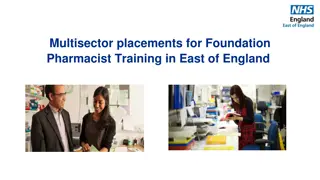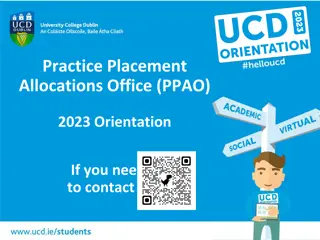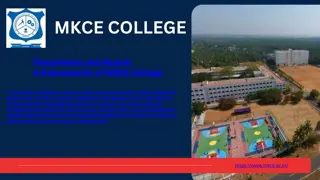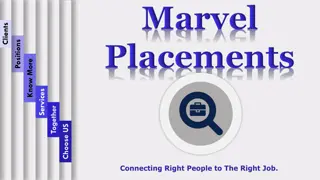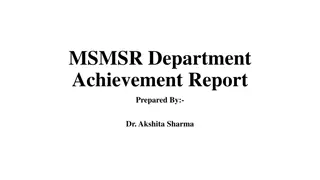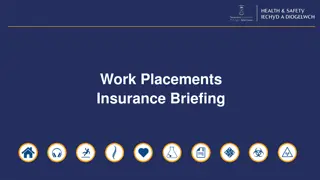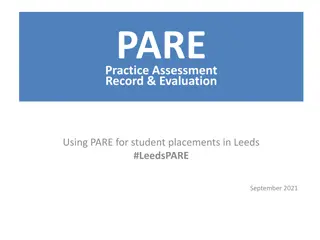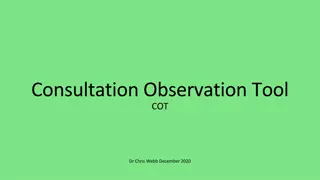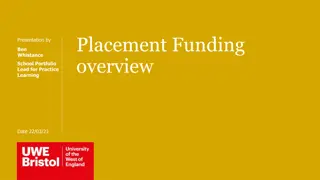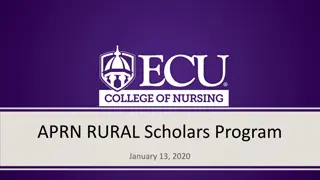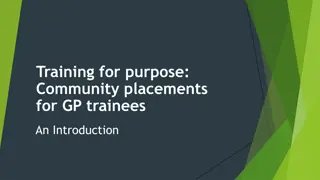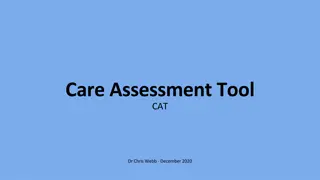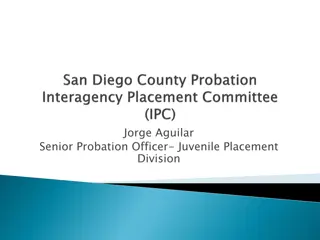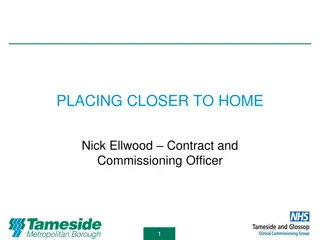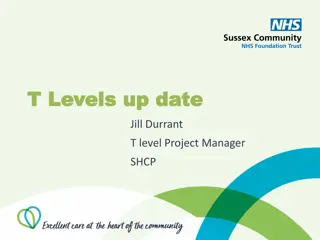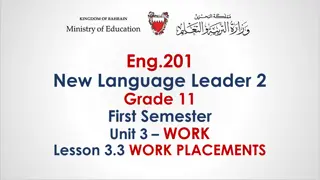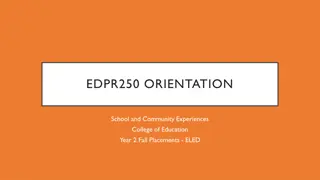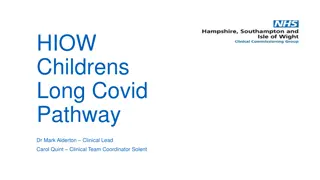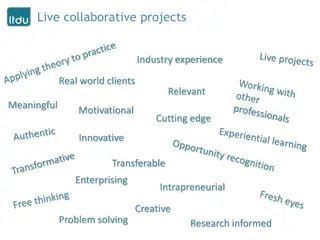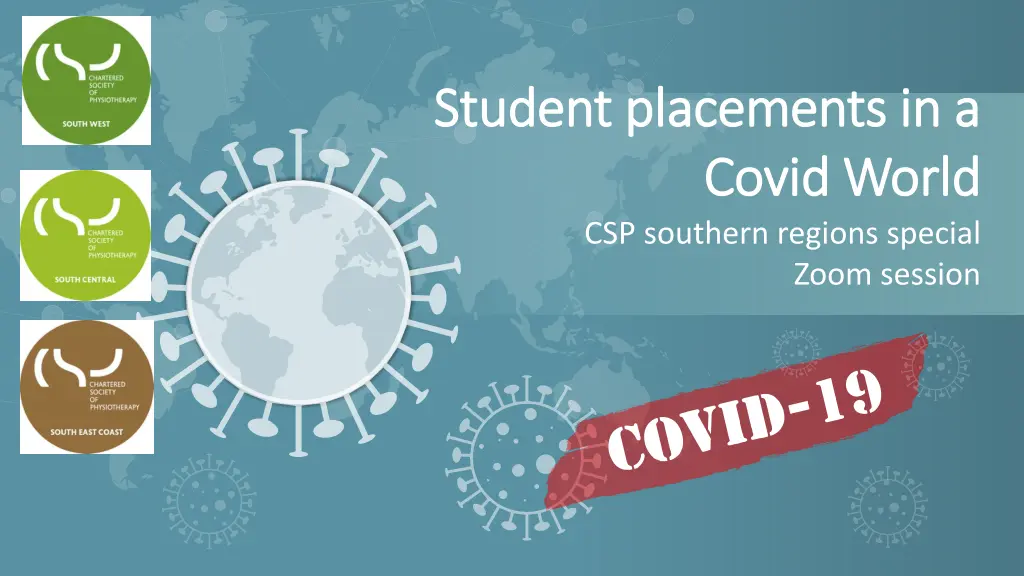
Dispelling Myths About Student Placements in the Healthcare Sector
Discover the truth behind common misconceptions regarding student placements in healthcare, challenged by experts in the field. Gain valuable insights into the evolving landscape of placement opportunities and the importance of diverse experiences for student growth and development.
Download Presentation

Please find below an Image/Link to download the presentation.
The content on the website is provided AS IS for your information and personal use only. It may not be sold, licensed, or shared on other websites without obtaining consent from the author. If you encounter any issues during the download, it is possible that the publisher has removed the file from their server.
You are allowed to download the files provided on this website for personal or commercial use, subject to the condition that they are used lawfully. All files are the property of their respective owners.
The content on the website is provided AS IS for your information and personal use only. It may not be sold, licensed, or shared on other websites without obtaining consent from the author.
E N D
Presentation Transcript
Student placements in a Student placements in a Covid Covid World CSP southern regions special World Zoom session
Housekeeping Mics to mute The session is being recorded & will be posted up on the CSP site so that you can review what was discussed. At the end of the session please use the chat room to tell us your take home message (Start with #Message) Use chat function to tell us who you are and where you are from and let us know if there is anything the CSP can do to help with your placements (Start with #Help) Following each myth presentation there will be a short period for discussion. Please note down any questions that spring to mind during the presentations to save them for the Q&A session
Agenda 01 Placement overview nationally - (Gill Rawlinson, CSP Assistant Director, Practice & Development) Challenging the Myth 1: Placements can only be patient facing and in patient facing environments Challenging the Myth 2: All student placements have to be a certain type e.g. Acute ITU Challenging the Myth 3: Technology enabled care services placements are not as valuable as traditional face to face placements 02 03 Q&A from members to panel (using chatroom) Finish tell us your #Message & what #Help you need!
Biographies for todays session Christie Robinson Associate Head of School (Practice Learning) & Lecturer in Physiotherapy at the University of Plymouth A neurological physiotherapist with specialism in paediatric neurodisability previously, Christie has been at the University of Plymouth since 2015 and involved in placement planning and support for the last 3 years. Lee Buckland Musculoskeletal Physiotherapist and Placement Coordinator for Northern Devon Healthcare NHS Trust. He has responsibility to his own patients but also in providing training and support across the wider team, as well as running a weekly injection clinic. He has now been key to co-ordinating Student Physiotherapy Placements across North Devon for many years and is always keen to support students and offer the best placement experience he can. In his spare time amongst family commitments you may find him in the ocean enjoying the waves of North Devon! Christina Tang Wah Now 7-years post stroke, which led her to wanting to pursue a career in physiotherapy, she is about to finish her final year at the University of Plymouth.
All students need to undertake core placements in core specialities Quite a common and wide held misperception Traditional placement models tended to follow core approach ie Respiratory, MSK, Neuro, etc Increasingly unworkable limited capacity put undue pressures on certain teams Traditional model leaves un-tapped capacity
Students need to gain a breadth of clinical experience through which they can develop learning across a wide range of physiotherapy practice A balanced sequence of practice placements A diverse range of settings Transferable skills achievable in a range of practice environments Recognition that core skills may be acquired in a range of settings Practice placements should reflect the kinds of environments in which they are likely to practise on qualification CSP Learning Principles Principle 6 Practice Placements
Our experience - collaboration and innovation Students expectations related to core placements not always met Educators sense of pressure or responsibility to deliver a certain type of placement experience Move to settings based model Acute, Intermediate Care, Outpatients Key knowledge and skills related respiratory, neurological and musculoskeletal dysfunction and specialist areas of Physiotherapy gained across a range of practice settings Represents real clinical practice Increasing opportunity to utilise non-NHS providers Opportunity for innovation and collaboration with new providers, service delivery models
Community Paediatric Physiotherapy East Sussex Children s Integrated Therapy Service Kent Community Health NHS Foundation Trust and University of Brighton Georgia Loft MSc Physiotherapy (pre-reg) Twitter: @Georgia_Loft Amy Jepson Clinical Educator, Band 7 PT Twitter: @AmyDolling Sarah-Jane Ryan- PT Practice Placement Lead Twitter: @sjryan15 Myth 3: Technology enabled care services placements are not as valuable as traditional face to face placements What s working well? What would we do differently? Hints/Tips and Tricks!
Thank you! Subscribe to regional iCSP emails on your iCSP profile Visit your region under the regional pages section of the CSP website: https://www.csp.org.uk/networks/nations-regions Southern regions on social media: South West Twitter - https://twitter.com/CSPsouthwest South West Facebook - https://www.facebook.com/groups/828183730720424 South Central Twitter - https://twitter.com/CSPsouthcentral South Central Facebook - https://www.facebook.com/groups/590057697797178 South East Coast Twitter - https://twitter.com/CSPSouthEast

